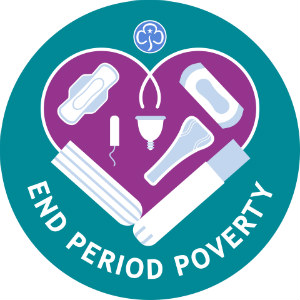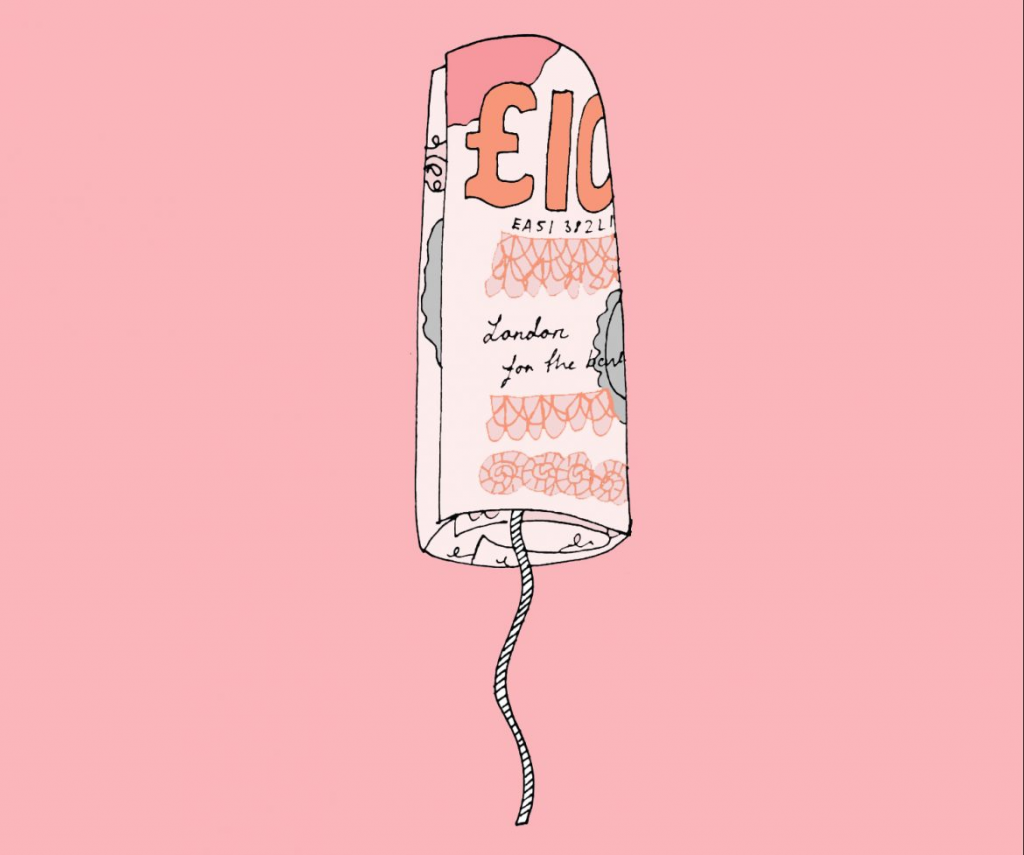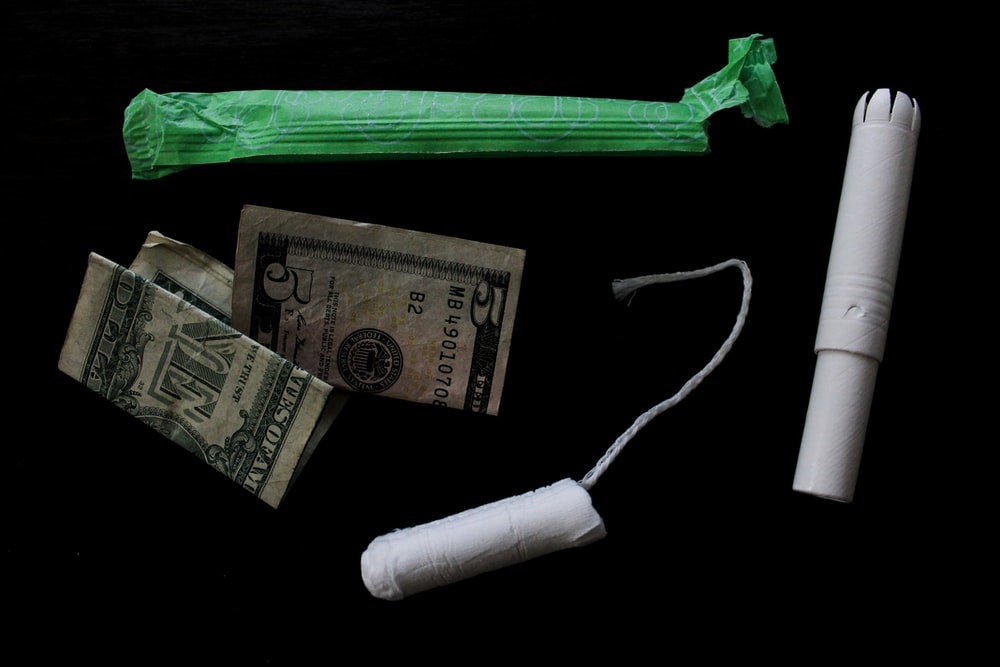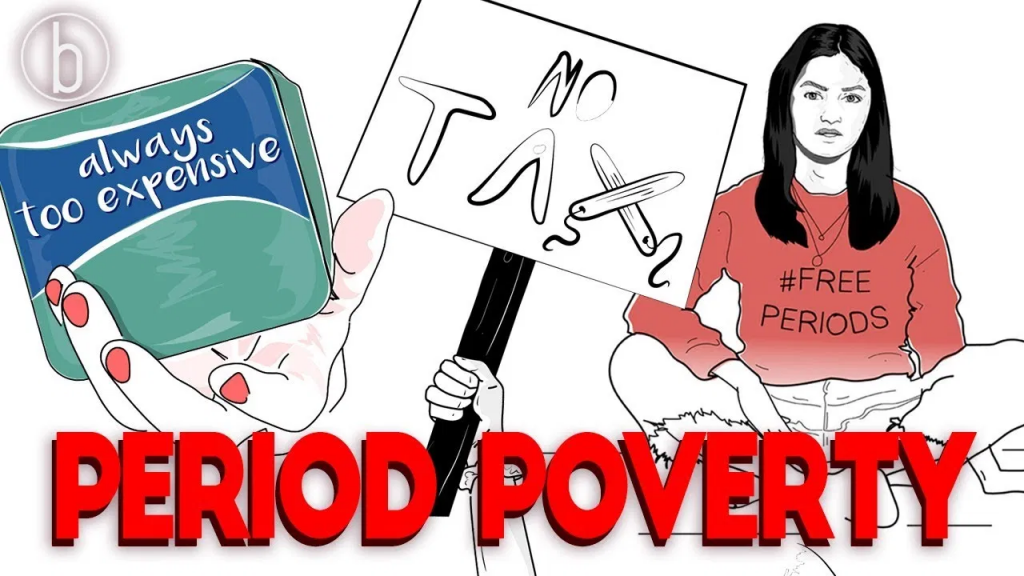We live in a world where roughly 49.6% of the total population is female, out of which 26% of women and girls are of menstrual age. As a young woman who has been taught to appreciate menstruation as the power of creation and proof of feminine strength, it isn’t completely bizarre to expect the world to understand, accept and respect menstruation as a natural biological process. Unfortunately, like all other matters in a woman’s life, the one that she isn’t in control of, is often condemned. Menstruation is that unaccepted reality of a woman’s daily life which is stigmatized to the extent, that for years women all across the globe have spent their lives living with shame and guilt for a biological process they didn’t even ask for! Amidst all the varied stigmas, myths and taboos surrounding menstruation, a common global issue affecting approximately 500 million women and girls of menstrual age is Period Poverty.
What is Period Poverty?
Period Poverty refers to the inadequate access to menstrual hygiene tools such as sanitary pads, tampons, proper washing and waste management facilities and a lack of menstrual health education. The term originated owing to the increased economic and financial vulnerability, women and girls face due to the expenses incurred on menstrual hygiene products. Period poverty encapsulates the struggle that the female population from lower socio-economic communities have to face when they are unable to afford sanitary products and manage menstrual health with dignity.
According to a report by ActionAid, one in 10 girls in African countries miss school because they don’t have access to sanitary products or because there aren’t private toilets to use at school. In India, out of its 355 million women of menstrual age, around 12% cannot afford period products.
Effects and Consequences
Due to a lack of menstrual equity in developing countries, a large percentage of women in rural areas are forced to use potentially harmful domestic alternatives such as wood shavings, dried leaves, hay, old socks filled with sand etc. Whatever items which they find is easily available, cheap and most absorbent is used during the period cycle without realizing its dangerous effects on their reproductive health. Resorting to such unhygienic and dangerous alternatives puts them at an increased risk of developing various urinary and reproductive disorders.
According to research by UNICEF, period poverty is not solely about a person’s inability to afford menstrual supplies. It is also the limitation of sanitary products, which could lead to a prolonged use of the same products that puts women and girls at a risk of developing infections.
The threats posed by period poverty are not just limited to social, economic and biological risks. Rather it limits the full potential of women and girls by affecting their education, mental well-being and at times, major life decisions. The effects of period poverty are also reflected in the large percentage of absenteeism and school drop-outs during the menstrual cycle. This is accelerated by the lack of sanitation and adequate water resources in schools and other educational institutions.

Tampon Tax
One of the major factors contributing to period poverty is the tampon tax, a tax which is levied on feminine hygiene items such as pads, liners, tampons, and cups. This gender-based pricing is a form of an institutional mechanism which propagates gender injustice because only women purchase these sanitary products and therefore only they disproportionately suffer the economic brunt of the tax levied on them.
As a result, not paying the ‘tampon tax’ isn’t really a choice because menstruation for women and girls as young as 10-11 years old is not a ‘choice’. The tampon tax, a form of a sales tax is levied on a necessity. This in turn forces many women in rural areas of developing countries to choose between using their income for feeding their family or purchasing unaffordable menstrual hygiene products. Even though on one hand countries like India, Canada and Australia have scrapped the tampon tax owing to the activism of various national and local level NGOs; tampon tax is as high as 25%-27% in countries like Hungary and Sweden on the other hand.
Period Poverty is a global problem affecting not only developing countries but also the developed countries of the world. Even though most developed nations have a stable mechanism of menstrual hygiene and management, the high rates of tampon tax levied on period products act as a barrier in equal accessibility of menstrual hygiene products which disproportionately affect women of lower economic brackets. This is evident in developed countries such as Germany and Switzerland where tax levied on period products is as high as 19% and 7.7% respectively

Why is it Important to address this issue?
Women suffering from period poverty face challenges, not only the lack of access to resources, but also the socio-cultural stereotypes and myths surrounding menstrual health management. Over the years, organizations, for instance UNICEF, Wash United, Menstrual hygiene alliance and various other national level NGOs have worked diligently to spread awareness and increase accessibility of feminine hygiene products.
However, it is imperative that issues such as Period Poverty are tackled in order to normalize the idea of mensuration for women and girls across different nations, religions, cultures and races.
Individuals and communities, for instance, the Redbox project, Bloody Good period, Binti project etc. are inspiring efforts and movements fighting to achieve period equality. These small movements aiming to achieve menstrual equity in society win the larger battle of normalizing menstruation for young women and girls. This enables them to realize that menstruation isn’t a curse but a sign of infinite energy and creativity. It is a testimony of how much their bodies can biologically withstand for which they deserve only love and respect.
This normalization of menstruation must begin at home with each of us actively contributing to create an environment of period positivity. So, to all my readers: Never make your girls apologize for bleeding seven days every month. Teach them how the blood that flows every month isn’t a sign of weakness or inferiority but a mark of how much their bodies can biologically withstand. Create a safe space for them where they can question, communicate and understand menstrual health management.
References
1. ActionAid. (2020). Period Poverty. Available at: https://www.actionaid.org.uk/about-us/what-we-do/womens-economic-empowerment/period-poverty
2. Bank, W. (2018). Menstrual Hygiene Management Enables Women and Girls to Reach Their Full Potential. Available at: https://www.worldbank.org/en/news/feature/2018/05/25/menstrual-hygiene-management
3. FIGO. (2019). Month after Month, Period Poverty. Available at: https://www.figo.org/news/month-after-month-period-poverty
4. Rios, G. R. (2020). The Global Movement Against the Tampon Tax. Girls globe.
5. Rodriguez, E. S. (2019). Period Poverty: Everything You Need to Know. Global Citizen. Available at: https://www.globalcitizen.org/en/content/period-poverty-everything-you-need-to-know/
6. UNFPA. (2020). Menstruation and human rights. Available at: https://www.unfpa.org/menstruationfaq#:~:text=Period%20poverty%20describes%20the%20struggle,burden%20posed%20by%20menstrual%20supplies.
7. UNICEF. (2018). Nine things you didn’t know about menstruation. Available at: https://www.unicef.org/press-releases/fast-facts-nine-things-you-didnt-know-about-menstruation
8. Wakeman, J. (2020). Pink Tax: The Real Cost of Gender-Based Pricing. Healthline. Available at: https://www.healthline.com/health/the-real-cost-of-pink-tax#The-tampon-tax
IVolunteer International is a 501(c)3 tech-nonprofit registered in the United States with operations worldwide. Using a location-based mobile application, we mobilize volunteers to take action in their local communities. Our vision is creating 7-billion volunteers. We are an internationally recognized nonprofit organization and is also a Civil Society Associated with the United Nations Department of Global Communications. Visit our profiles on Guidestar, Greatnonprofits, and FastForward.



